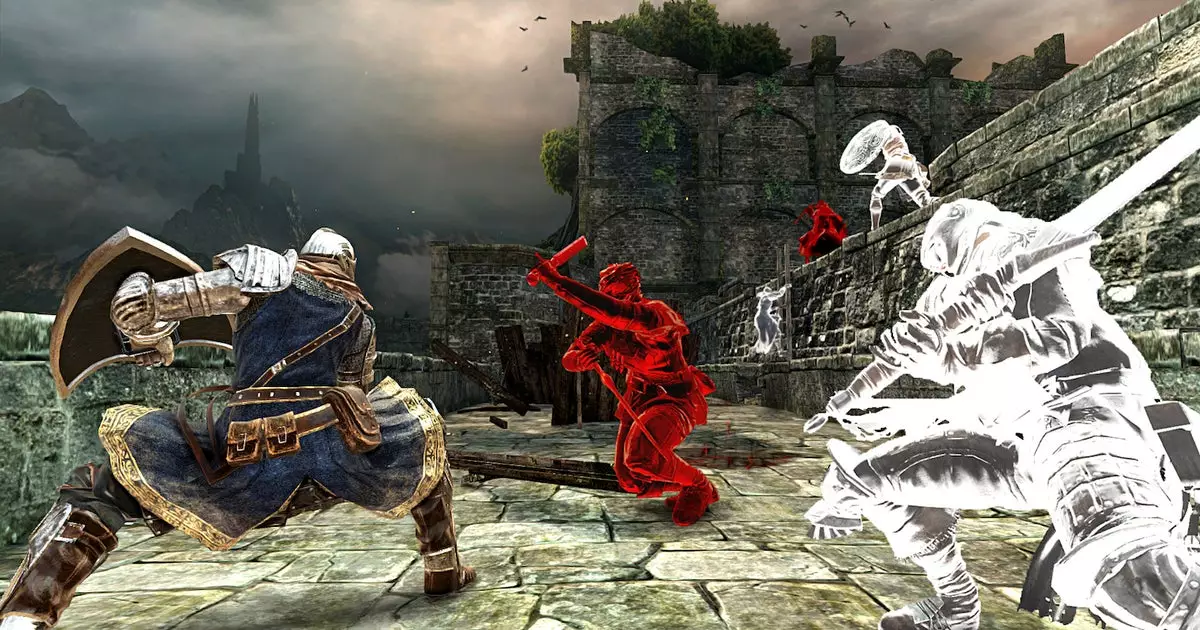In a noteworthy turn of events within the entertainment industry, Sony has entered into a partnership with Kadokawa Corporation, a significant player in the world of Japanese media, known primarily for its connection to FromSoftware—the studio behind the beloved Dark Souls franchise. This relationship, while not an outright acquisition, positions Sony as the largest shareholder of Kadokawa and opens the door for a variety of collaborative ventures that could reshape both companies’ futures in the global market.
Sony’s recent agreement with Kadokawa involves the purchase of over 12 million new shares, totaling approximately 50 billion yen. This investment elevates Sony’s stake in Kadokawa to nearly 10%, granting them considerable influence over Kadokawa’s strategic direction. Unlike a traditional acquisition where one company overtakes another, this arrangement signifies a partnership aimed at mutual benefits, while also fostering a collaborative environment between the two giants.
This partnership isn’t born from a vacuum; both companies have previously collaborated on projects, suggesting a familiarity and compatibility that bodes well for future endeavors. The primary focus of this new alliance appears to be on expanding the IP (intellectual property) across various media platforms. This could lead to exciting adaptations of Kadokawa’s content, including anime and games, to reach a broader international audience, a goal shared by both companies.
What does this alliance mean for the entertainment landscape? For one, it signals a significant shift in how media companies are approaching intellectual property. The agreement indicates a commitment to “joint investments in the content field,” which can encompass a wide array of projects from film adaptations to animated series. With Sony’s extensive global reach and expertise in entertainment, Kadokawa can better position itself to diversify its offerings and audiences.
Industry insiders have speculated about potential gaming franchises that could benefit from such partnerships. As mentioned, Bloodborne enthusiasts have expressed concern about the potential exclusivity of future installments such as Dark Souls 4 for the PlayStation console. While these fears might seem premature given the nature of the current agreement, it still raises questions about the potential reshaping of IP distribution.
Moreover, the specifics about collaborating on physical and virtual productions—particularly the mention of developing human resources for virtual production—hint at cutting-edge advancements in filmmaking and content creation. With the rise of virtual and augmented reality, this could usher in innovative ways of storytelling that engage audiences like never before.
The alliance between Sony and Kadokawa isn’t merely focused on financial benefits; there’s a clear emphasis on the creative synergy that this partnership can cultivate. Kadokawa’s CEO has expressed optimism regarding the potential for enhanced IP creation capabilities, suggesting that the resources and support from Sony could allow Kadokawa to expand its creative horizons and explore new storytelling avenues.
Additionally, the versatility of Kadokawa’s diverse catalog—from traditional literature to modern video games—further complements Sony’s established portfolio, creating a comprehensive media mix that can be globally recognized. This interconnectedness may lead to the creation of unique content that draws from different genres and styles, appealing to a wide range of audiences.
One significant aspect of this partnership is the preservation of jobs within both companies. In a climate where mergers often lead to layoffs and cost-cutting measures, this strategic alliance seems to prioritize sustainability. By enabling both Sony and Kadokawa to maintain their workforces, this collaboration may foster innovation without compromising job security, which is commendable in an environment fraught with economic uncertainty.
As we look ahead, the potential for growth in Kadokawa’s gaming projects—rumored to be developing 26 titles—could further bolster the industry’s vitality. If handled thoughtfully, this alliance can lead to both companies thriving in a competitive marketplace while continuing to provide diverse and engaging content for consumers.
Sony’s partnership with Kadokawa represents a calculated move toward greater collaboration and IP expansion in the ever-evolving landscape of global entertainment. While questions about exclusivity and content distribution remain, the potential for creative innovation and stability within the workforce are promising aspects of this alliance. As both companies look toward the future, fans and industry observers alike will be watching closely to see how their combined strengths will shape the media and gaming worlds in the years to come.

